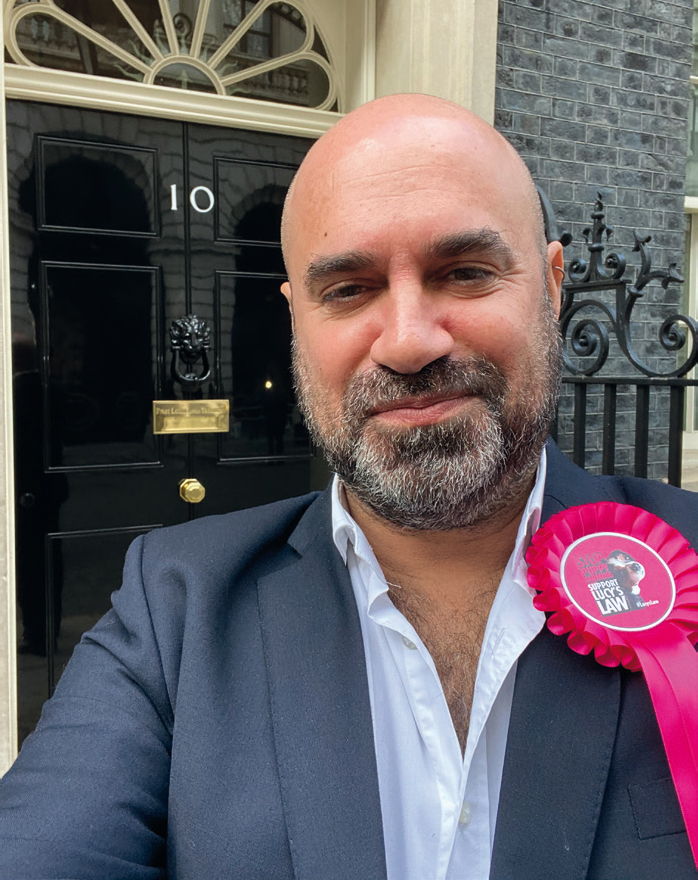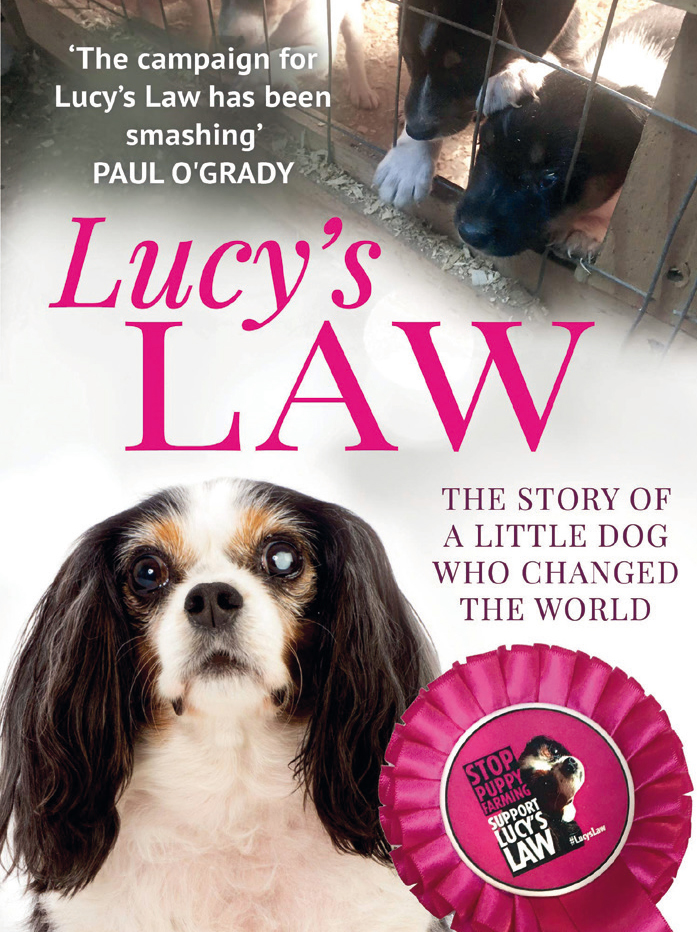Anyone who has worked in practice will be well aware of the misery surrounding cases of preventable suffering, such as flea-bite anaemia kittens, flystrike rabbits, and poorly bred parvo pups. It was seeing eight cases of the latter in one night, just over 10 years ago, that inspired me to campaign against puppy farming. Already a media vet, it was easy to connect with dog-loving personalities, inviting them to be celebrity judges at my fun annual dog show ‘Pup Aid’. Over the years Pup Aid grew and grew, helping raise awareness about puppy farming, as well as the only two ways of choosing a dog responsibly, either direct from the breeder always asking “Where's Mum?”, or adopted from rescue instead.

As a kid, I confess to being a caterpillar-collecting, nerdy geek who struggled to have any human friends let alone interact with proper grown-ups, so unsurprisingly politics, history, and law appeared as alien as they could. But I now needed to do more than just a dog show to raise awareness, so I began lobbying MPs in Westminster, started e-petitions, attended rallies and debates, and over 300 visits to Parliament, on every day off from vetting, began making slow progress. My trusted team of grassroots campaigners faced much opposition, offen from some very unlikely organisations, but we battled on and kept presenting evidence to the country's decision-makers. Puppy farming mainly depends on third party dealers like pet shops, ensuring the state of the mums and breeding conditions remain hidden from public view.

Our campaign asked the UK government to ban these dealers, thus making all dog breeders accountable, and giving puppy buyers complete transparency for the first time. When government ignored a formal inquiry recommending our ban, I decided to rebrand our campaign, naming it after Lucy, a Cavalier King Charles Spaniel rescued from a legal, licenced Welsh puppy farm with an already impressive social media following. Lucy's Law launched in Westminster in December 2017, quickly gaining public support, and helping persuade No. 10 to launch a public consultation into banning third party dealers.
Three months later an overwhelming response in favour of Lucy's Law meant Government announced victory for us campaigners at a special garden party in Downing Street, surrounded by celebrities, supporting charities, and even rescued puppy farm dogs.
Lucy's Law passed into English legislation in summer 2019, becoming enforceable from 6 April 2020, meaning it is now illegal for any breeder to sell a puppy (or kitten) without showing its mum in the place it was born. We also believe this will have an impact on puppy smuggling, and hope Welsh and Scottish governments, who have already promised Lucy's Law, will announce dates of implementation ASAP, finally ridding the UK mainland of cruel puppy dealers.
The Lucy's Law campaign shows that anyone can raise awareness and/or change the law; it even led me to arrange the high-profile adoption of rescue dog Dilyn by the Prime Minister. All the campaigning tools are out there to prevent suffering of the most vulnerable; in this case puppies, kittens, their mums, and their unsuspecting owners. If you're interested in the Lucy's Law story and fancy campaigning for something you believe in or would perhaps like to change, then please check out my new book ‘Lucy's Law: The story of a little dog who changed the world’ on Amazon: https://www.amazon.co.uk/Lucys-Law-story-little-changed/dp/1912624982 and follow me on Twitter @marcthevet.

